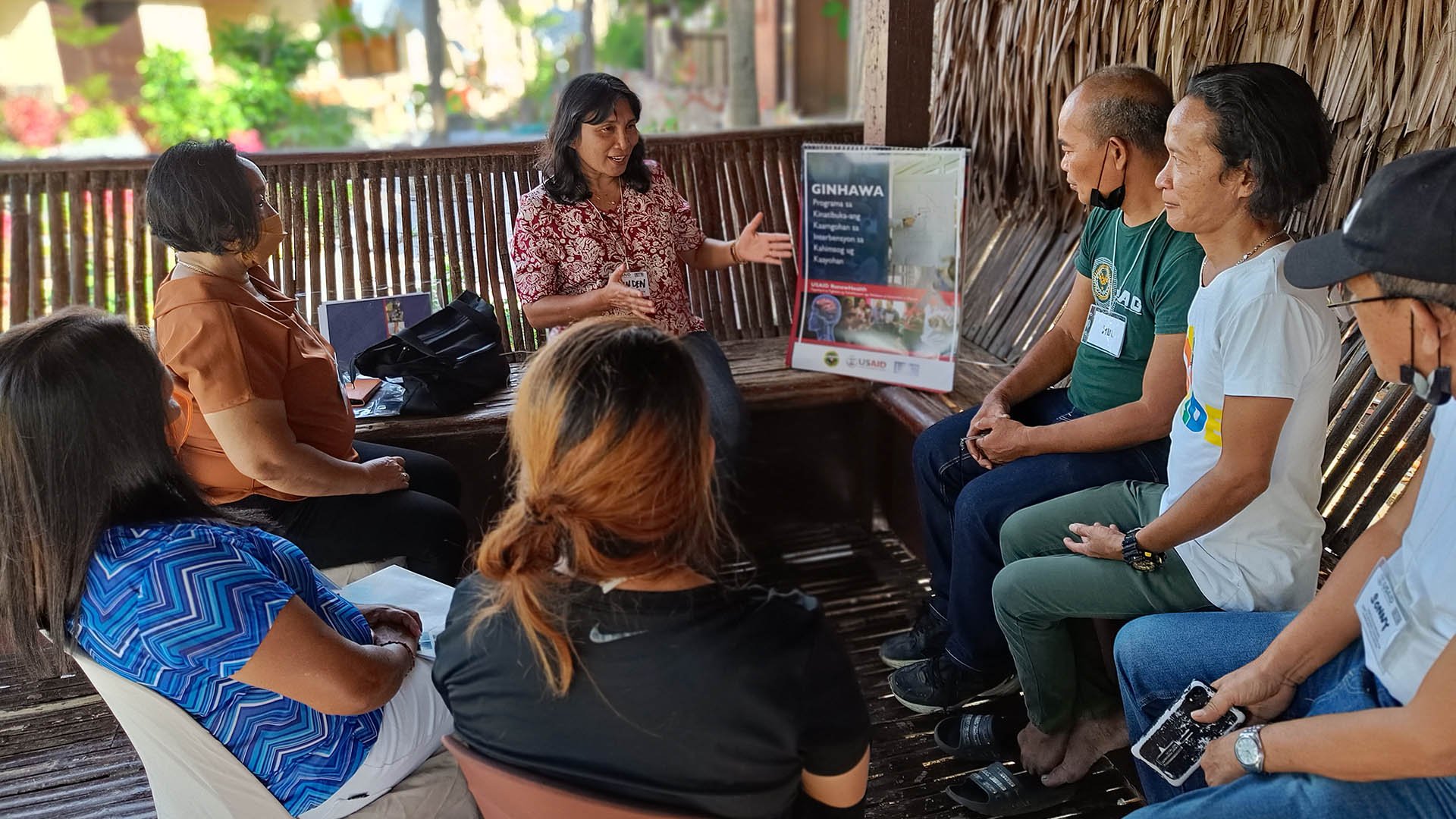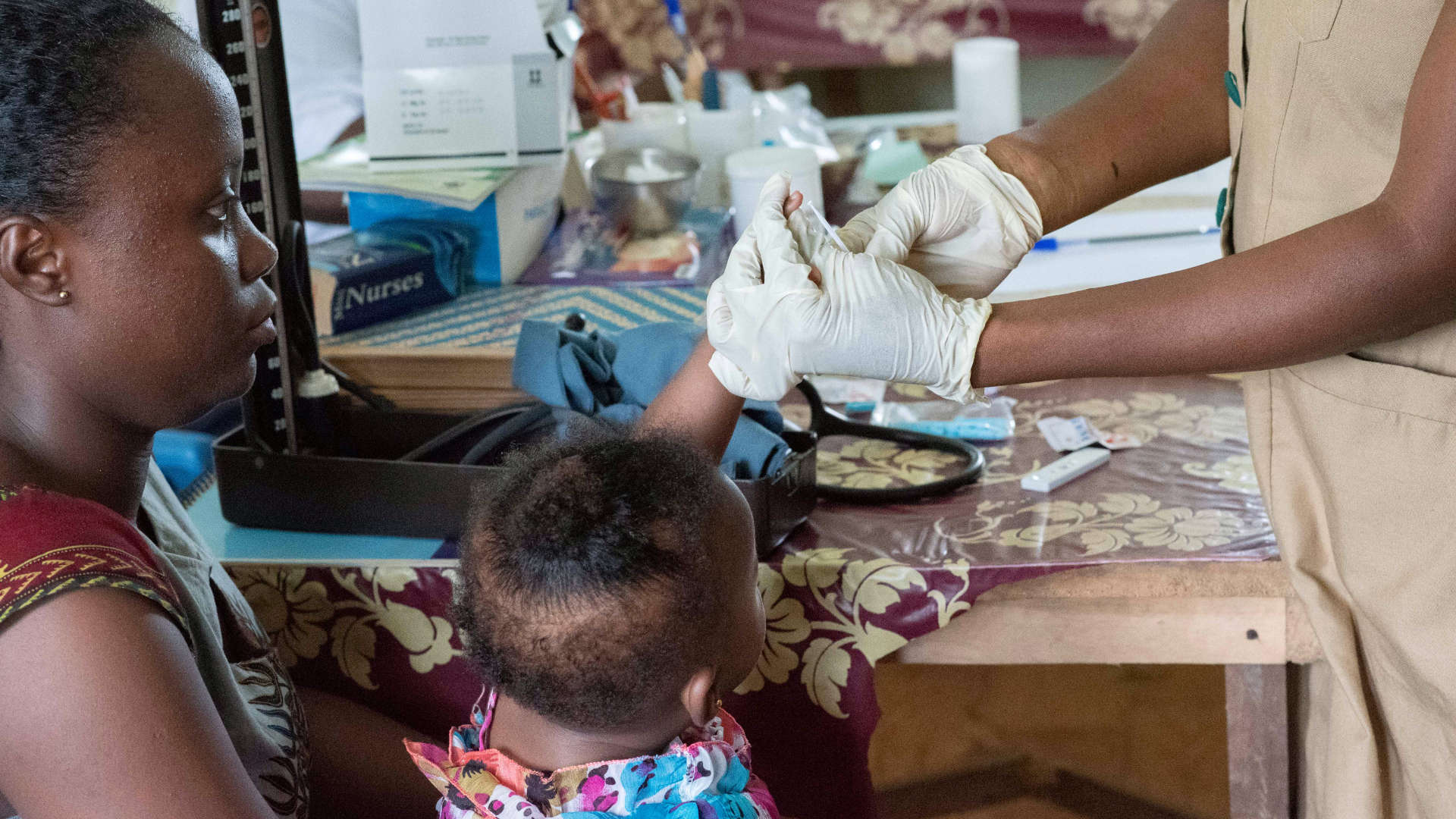USAID RenewHealth has been selected as one of three winners – out of 100 submissions – for the 2023 USAID Health Systems Strengthening Case Competition.
This second annual competition is an opportunity for USAID staff and partners working on health system strengthening activities to showcase their work and its impact on health systems and health outcomes.
USAID RenewHealth – implemented by URC – is a five-year project in the Philippines that promotes social integration and increases the accessibility of drug treatment and rehabilitation within the community, including community-based drug rehabilitation (CBDR). One challenge to implementing CBDR is relatively low resources.
Overcoming Resource Challenges
RenewHealth’s entry to the competition – Institutionalizing Community-Based Drug Rehabilitation in Inter-local Health Zones in Leyte Province – explains how a partnership involving RenewHealth and eight municipalities expanded access to CBDR and community-based mental health.
Major challenges in the implementation of CBDR in the Philippines include the lack of evidence-based treatment programs, limited trained personnel to conduct screening and deliver treatment, and the prevailing stigma and discrimination on persons who use drugs (PWUDs). In addition, small municipalities such as those in Leyte do not have sufficient funds to support CBDR.
RenewHealth provided technical assistance to address these challenges by training 40 service providers from Barangay Anti-Drug Abuse Councils on how to effectively reach PWUDs and their families; 33 were trained on Screening Brief Intervention and Referral to Treat. Thirty-six were trained as facilitators to provide treatment which adheres to evidence-based principles, basic human rights, aligned to the National Client Flow for Wellness and Recovery, and cultural appropriateness.
Given the lack of resources, RenewHealth supported the creation of an ILHZ model that includes eight municipalities from the Golden Harvest and Leyte Gulf in Tacloban, Leyte. The ILHZ Board, mayors, and partner agencies agreed to share resources for community-based drug rehabilitation and community-based mental health. Also created was a policy, or a joint ILHZ resolution, to operationalize the CBDR program.

To ensure the engagement of these ILHZs, RenewHealth implemented advocacy, mobilization, and social preparations. RenewHealth also conducted several capacity-building activities to enhance service delivery and enable collaboration for service providers in ILHZ, including: barangay healthcare workers; Department of Health deployed nurses; the barangay health emergency response team; civil society organizations; and faith-based groups.
Adds to URC Health Systems Strengthening Legacy
Through the ILHZ model, USAID demonstrated how CBDR can be implemented in small municipalities in the Philippines to help PWUDs, people in recovery, and their families obtain access to rehabilitation and recovery support to reduce or prevent drug dependence.
URC is proud of the system strengthening interventions implemented by the RenewHealth team in the Philippines. Building on country-defined goals and existing systems, URC has supported leaders, policymakers, and program managers to strengthen health systems to deliver high-quality, patient-centered care for more than 30 years. The results achieved by RenewHealth continue this tradition.



